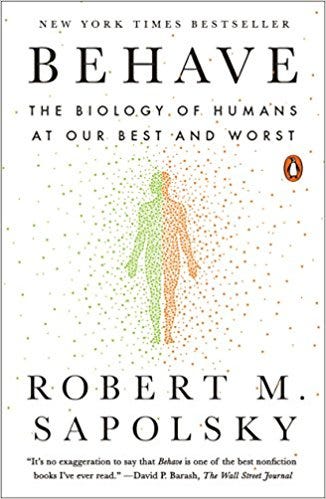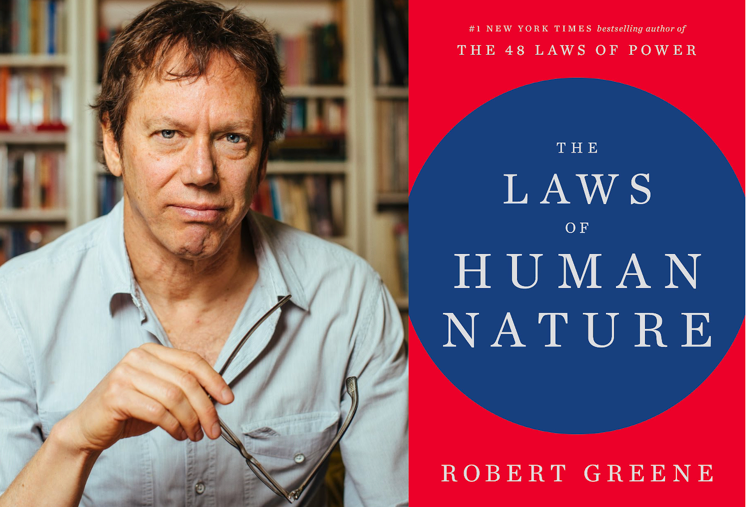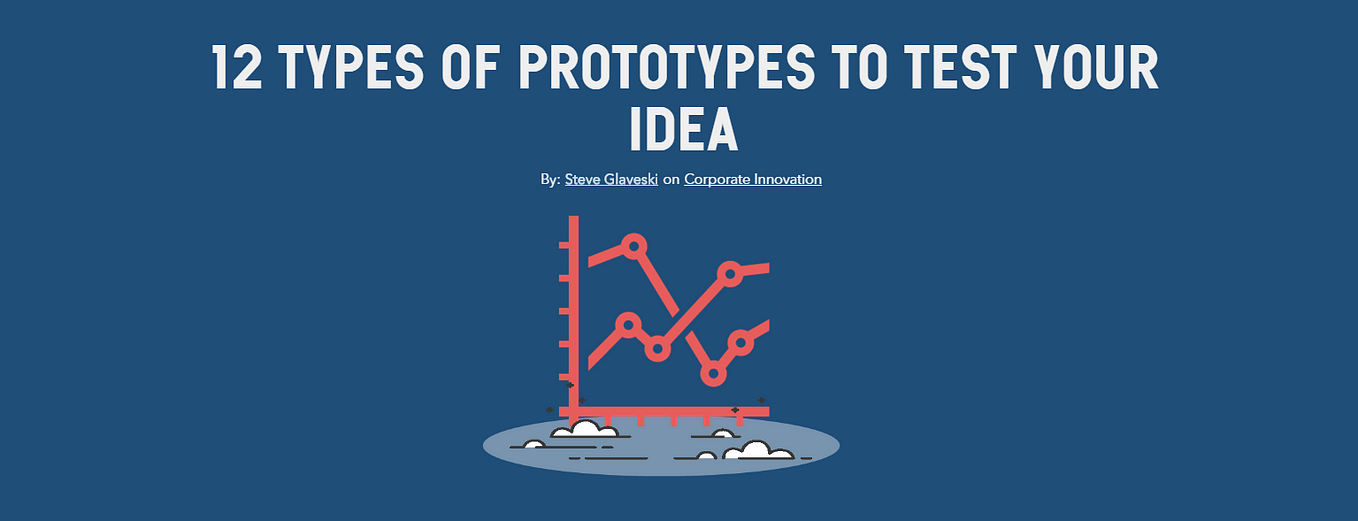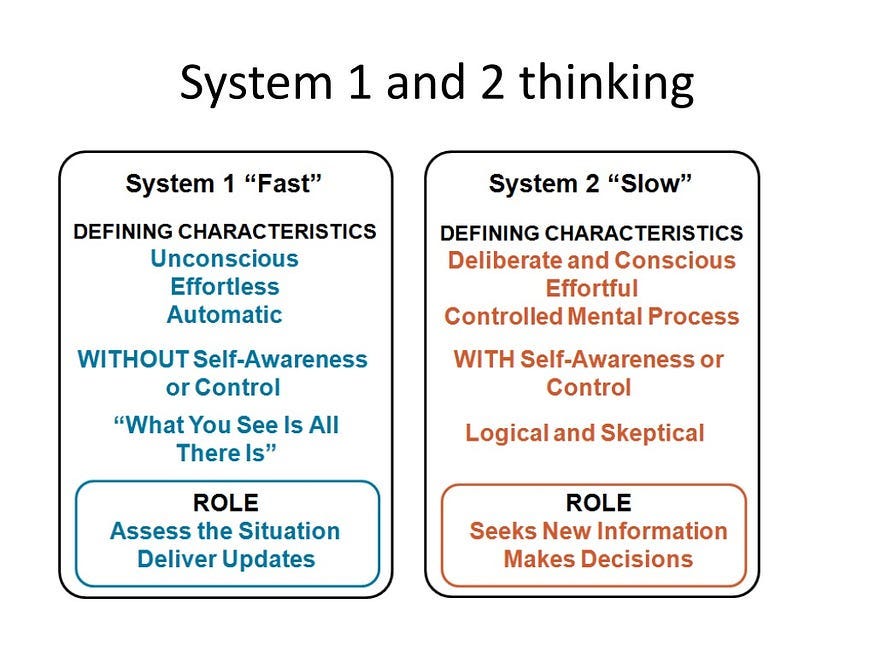Book Summary: 21 Lessons for the 21st Century by Yuval Noah Harari
Fresh off the back of the success of Sapiens and Homo Deus, Professor Yuval Noah Harari has returned with another book, not quite for the ages, but for the 21st Century.
21 Lessons for the 21st Century cuts through the information overwhelm and muddy waters of the online world and confronts the most urgent questions on today’s global agenda.
I was excited when I received my copy of the book in the mail, courtesy of Penguin Books, and couldn’t wait to get my head buried in it. And by all accounts, i.e. mine, it didn’t fail to disappoint.
Harari confronts today’s 21 big questions throughout the book’s 21 chapters and after having read and highlighted the book, distilled its 300 pages down to 16,000 words of notes, and then further distilled those notes down to 5,000 words of key lessons and take-aways, I decided to bring you my third book summary, kicking things off with:
Chapter One — Disillusionment
Stories
On the topic of information overwhelm, Harari makes the point that ‘humans think in stories rather than in facts, numbers or equations which is why the communist, fascist and liberal stories of the 20th Century were so powerful.
The simpler the story, he says, the better. A lesson not only for those of you declaring political war, which is fair to say few of you are, but also for those of you in the business and entrepreneurship game. It’s imperative that you make your stories simple.
While the 20th Century was all about three political systems, the 21st century introduces new stories and classes, that of humans, superhumans and artificial intelligence.
Artificial Intelligence
As AI gets more sophisticated it will create classes of humans; superhumans who are augmented by technology. As Elon Musk pointed out on a recent episode of the Joe Rogan Experience, we’ve already been augmented, there’s just a disconnect and the data rate is too slow.
While there’s a lot of pushback against the liberal story today, Harari says that at the end of the day humankind won’t abandon the liberal story because it doesn’t have any viable alternatives. “People may give the system and angry kick in the stomach but having nowhere else to go they will eventually come back.”
Chapter 2 — Work
Harari says that the better we understand the biochemical mechanisms that underpin human emotions, desires and choices the better computers can get at analysing human behaviour, predicting human decisions and replacing human professions such as bankers and lawyers.
At least in some lines of work, it might make sense to replace all humans with computers even if individually some humans still do a better job than machines.
On Automation
The US National Highway Traffic Safety Administration estimated that in 2012, 31% of fatal crashes involved alcohol abuse, 30% speeding and 20% distracted drivers.
Self-driving vehicles have none of these flaws and eventually, we could see the displacement of 3.5 million professional truck drivers in the United States alone, amongst other driving professions.
Rather than replacing humans entirely though, AI might actually help create new human jobs. Instead of humans competing with AI they could focus on servicing and leveraging AI. The job market of 2050 is likely to be characterised by human AI cooperation rather than competition.
Several years after IBM’s Deep Blue defeated chess grandmaster Garry Kasparov, human-computer cooperation flourished. However, in recent years computers have become so good at playing chess that their human collaborators lost their value, which could be seen as a precursor to what might happen at a more pervasive level.
Another computer program, DeepMind’s Alpha Zero, went from utter ignorance to creative mastery in under four hours without the help of any human guide, to dominate the world’s best AlphaGo players and programs.
AI and Creativity
People often say that AI could never feel like a human being, that it could never be as creative as a human being. On this point, chess tournament judges are constantly on the lookout for players secretly getting help from computers. One of the ways to catch cheats, we’re told, is to monitor the level of originality players display. If they play exceptionally creative moves, the judge’s suspect that this cannot possibly be a human move, it must be a computer move. At least in chess, creativity is already the trademark of computers rather than humans!
By 2050 not just the idea of a job for life but even the idea of a profession for life might seem antediluvian. However, Harari insists that many jobs are uninspiring drudgery not worth saving and I tend to agree given all the work I’m doing to help liberate people from playing boring process-oriented roles to unlock their potential and help them lead more fulfilling work lives. Nobody’s life dream is to be a cashier, says Harari. He goes on to say that “what we should focus on is providing for people’s basic needs and protecting the social status and self worth”. “Universal basic income will protect the poor against job losses and economic dislocation while protecting the rich from populist rage”.
Alternatives to UBI
The government could subsidize universal basic services (UBS) rather than income Instead of giving money to people who then shop around for whatever they want the Government might subsidize free education, free healthcare, free transport and so forth. This effectively brings the communist plan to fruition, albeit not by revolution.
Harari warns of the threat of further geographic consolidation of wealth though. “If a 3D printer takes over from the Bangladeshis, the revenues previously earned by the South Asian country will now fill the coffers of a few tech giants in California. This could pave the way for an even greater wealth gap and the collapse of developing countries.
Some say that the big tech companies should be taxed to cover the shortfall, and right they may be, insofar as the local distribution of taxes is concerned, but Harari points out that people are unlikely to support the distribution of these funds offshore to places defined by president Trump as ‘shithole countries’. If you believe the typical American voter will support that, says Harari, you might just as well believe that Santa Claus or the Easter Bunny will solve the problem.
Happiness = Reality — Expectations
The problem with UBI or UBS is that human beings aren’t just built for satisfaction. Human happiness depends less on objective conditions and more on our own expectations. Our expectations adapt to changing conditions including to the condition of other people (keeping up with the Joneses). When things improve, expectations balloon and consequently even dramatic improvements in conditions might leave us as a dissatisfied as before.
Today’s poor live better than yesterday’s kings, however, Americans are taking antidepressants in astounding numbers, leading to the current opioid epidemic. People need not only the basics, but they need to feel like they have enough, that their contributions are worthwhile, that they are learning and growing and that they have access to a community.
—
Chapter 3 — Liberty
On Democracy and Voting
Harari shares the following quote: “You might as well call a nationwide plebiscite to decide whether Einstein got his algebra right.” However, he goes on to say that for better or worse, elections and referendums are not about what we think. They’re about what we feel.
Winston Churchill famously said that ‘democracy is the worst political system in the world, except for all the others’. Rightly or wrongly people might reach the same conclusions about big data to algorithms that may come to run the world. They might have lots of bugs but we have no better alternative.
‘Truth’
Recently on an episode of the Sam Harris podcast, Harris and psychologist Jordan Peterson debated for what seemed ad infinitum, the definition of truth. Harari puts it simply; truth today is defined by the top results of the Google search.
On big data algorithms, once we begin to count on AI to decide what to study, where to work, and who to marry, democratic elections and free markets will make little sense.
Psychology and AI in war
On 16 March 1968, a company of American soldiers went berserk in the South Vietnamese village of My Lai and massacred about 400 civilians. This war crime was initiated by American forces that had been involved in jungle guerrilla warfare for several months. It was a fault of human emotions. If the US had the killer robots in Vietnam, the massacre would never have occurred. However, if the US had killer robots the war could have dragged on for many more years because the American government would have had fewer worries about the moral of soldiers or massive anti-war demonstrations.
Companies today are not only doing more with less, such as Netflix, which with 5,000 or so employees has a market capitalization of more than US$60 billion compared to Blockbuster which, with a workforce of 60,000 could only muster up a market cap at its peak of US$5 billion. These benefits extend to the realm of warfare. Today whenever Palestinians make a phone call or post something on Facebook or travel from one place to another they’re likely to be monitored by Israeli microphones, cameras, drones, and software. The data is analysed with the aid of algorithms which helps Israeli security forces pinpoint and utilise potential threats. It is therefore surprisingly easy for few Israeli soldiers to control about two and a half million Palestinians.
Algorithms and Personal Finance
When you apply it to your bank for a loan, it’s likely that your application is processed by an algorithm rather than a human. The bank might refuse to give you alone and you ask why and the bank replies, “algorithm said no”. You ask, “why did the algorithm say no, what’s wrong with me?” The bank replies “we don’t know, no human understands the algorithm because it is based on advanced machine learning but we trust our algorithm so we won’t give you a loan”.
Chapter 4 — Equality
Those who own the data own the future.
Harari says that unlike land and machines data is everywhere and nowhere at the same time, it can move at the speed of light and you can create as many copies of it as you want. So we had better call upon our lawyers, politicians, philosophers and even poets to turn their attention to this conundrum. The key political question of our era is quite possibly, “how do you regulate the ownership of data?”
This also echoes what many commentators are saying when analysing the forward march of big tech companies who, more often than not, are spearheaded by people who lack the fundamentals when it comes to the broader economic, political, social or philosophical implications of their work. We need to solve complex problems by taking a multi-disciplinary approach.
Chapter 5 — Community
On tech addiction and how it is compromising genuine human connection and community, Harari makes the point that it is easier than ever to talk to his cousin in Switzerland but it is harder to talk to his husband over breakfast because he constantly looks at his smartphone instead of at him.
Chapter 6 — Civilization
10,000 years ago, humankind was divided into countless isolated tribes where we knew no more than a few dozen people. With each passing millennium, these tribes fused to larger and larger groups creating fewer and fewer distinct civilizations. In recent generations, the few remaining civilizations have been blending into a single global civilization.
People care far more about their enemies than about the trade partners, says Harari. For every American film about Taiwan there are probably about 50 about Vietnam.
The people we fight most often are our family members.
Chapter 7 — Nationalism
There is nothing wrong with benign patriotism.
The problem, Harari warns, starts when benign patriotism morphs into chauvinistic ultra-nationalism. Instead of believing that my nation is unique, which is true all nations, I might begin feeling that my nation is supreme.
The Environment
Unless we dramatically cut the emission of greenhouse gases in the next 20 years, average global temperatures will increase by more than two degrees celsius resulting in expanding deserts, disappearing ice caps, rising oceans and more extreme weather events such as hurricanes and typhoons.
It isn’t a coincidence that skepticism about climate change tends to be the preserve of the nationalist right, says Harari. You rarely see left-wing socialists tweet that climate change is a Chinese hoax. When there is no rational answer, but only a global answer to the problem of global warming, some nationalist politicians prefer to believe the problem does not exist.
To counter this, the advent of unconventional technologies might help. For example, clean meat. This might sound like science fiction but the world’s first clean hamburger was grown from cells and then eaten in 2013. It cost $330,000. Four years of research and development brought the price down to $11 per unit and within another decade, clean meat is expected to be cheaper than slaughtered meat, which can count for a lot towards ecological rejuvenation when you consider that the water footprint of beef alone is 1,800 gallons per pound of beef.
Three threats facing humanity: technological nuclear and ecological
We now have a global ecology, a global economy and global science but we are still stuck with only national politics. This mismatch prevents the political system from effectively countering main problems. To have effective politics we must either be globalising economics and the major science or we must globalise politics.
Global governance, Harari says, is unrealistic. Rather, to globalise politics means that political dynamics within countries give far more weight to global problems and interests.
Chapter 8 — Religion
Harari says that in order to understand the role of traditional religions in the world of the 21st Century, we need to distinguish between three types of problems:
1- Technical problems: how should farmers in arid countries deal with severe droughts caused by global warming?
2 Policy problems: what measures should Government adopt to prevent global warming in the first place?
3 Identity problems: should I even care about the problems of farmers on the other side of the world?
As Karl Marx argued, religion doesn’t really have much to contribute to the great policy debates of our time.
Freud ridiculed the obsession people have about such matters as a narcissism of small differences. On this point, I did some research to find out why the Eastern Orthodox and Western Christian religions branched off from each other. One of the key points of difference that ultimately split the churches was that most Western Christians use a version of the Nicene Creed that states that the Holy Spirit “proceeds from the Father and the Son”, whereas the original Orthodox version doesn’t feature ‘and the Son’. That was it. Perhaps Freud had a point.
Chapter 9 — Immigration
To clarify matters, Harari defines immigration as a deal with three basic conditions or terms.
1 — The host country allows to immigrants in.
2 — In return, the immigrants must embrace at least the norms and values of the host country even if that means giving up some of their traditional norms and values.
3 — If they assimilate to a sufficient degree over time they become equal and full members of the host country. They become us.
Precisely because you cherish tolerance, says Harari, you can not allow too many intolerant people in. While the tolerant society can manage more liberal minorities, if the number of such extremes exceeds a certain threshold, the whole nature of society changes. If you are bringing in too many immigrants from the Middle East, you will eventually end up looking like the Middle East says Harari.
On culturists: People continue to conduct a heroic struggle against traditional racism without noticing that the battlefront has shifted from traditional racism to culturists.
Terrorism
On terrorists: They kill very few people but nevertheless managed to terrify billions and shake huge political structures such as the European Union or the United States to their core. Since September 11, every year terrorists have killed about 50 people in the EU, about 10 people in the USA, about seven people in China and 25,000 people globally, mostly in Iraq, Afghanistan, Pakistan, Nigeria and Syria.
Diabetes and high sugar levels kill up to 3.5 million people annually while air pollution kills about seven million people.
Terrorism is like the fly that tries to destroy a china shop. The fly is so weak that it cannot move even a single teacup. How does a fly destroy china shop, asks Harari? It gets inside a bull’s ear and starts buzzing. The ball goes wild with fear and anger and destroys the china shop. This is what happened after 9/11 as Islamic Fundamentalist got inside the ear of the American bull to destroy the Middle Eastern china shop. Now they flourish in the wreckage. And Harari reminds us that there is no shortage of a short-tempered bulls in the world.
The overreaction to terrorism poses a far greater threat to our security than terrorist themselves. This lesson echoes lessons from Robert Greene’s 33 Strategies of War, in luling your opponent into making premature, emotion-driven decisions and ultimately, the wrong move, one that you are ready to capitalise on.
Harari says that a successful counter terrorism struggle should be conducted on three fronts.
1 — Government should focus on clandestine actions against the terror networks.
2 — The media should keep things in perspective and avoid hysteria theatre. As it stands, the media obsessively report terror attacks because reports on terrorism sell newspapers much better than reports of diabetes or pollution.
3 — The imagination of each and every one of us. Terrorist hold our imagination captive and use it against us. It is the responsibility of every citizen to liberate his or her imagination from the terrorists and to remind ourselves of the true dimensions of this threat.
Chapter 11 — War
Today information technology and biotechnology are more important than heavy industry when it comes to war.
Today the main economic assets consist of technical and institutional knowledge rather than wheat fields, goldmines or even oil fields and you just cannot conquer knowledge through war.
Chapter 12 — Humility
Even apes developed the tendency to help the poor, the needy and fatherless millions of years before the Bible instructed ancient Israelites to do the same.
Chapter 13 — God
Harari says that morality doesn’t mean following divinities. It means reducing suffering. Hence in order to act morally, you don’t need to believe in any myth or story. You just need to develop a deep appreciation of suffering. In the long run, immoral behaviour is counterproductive. You’re not likely to live in a society where strangers are constantly being raped and murdered. Not only would you be in constant danger but you would lack the benefit of trust between strangers which supports trade and economic growth among other things.
Religious belief can either create compassion in people or justify and stoke their anger especially if someone dares to insult their God ignores his wishes.
On secularism, Harari reminds us that the secular code enshrines the values of truth, compassion, equality, freedom, courage and responsibility. The secular code isn’t an ideal to aspire to rather than social reality.
The most important secular commitment is to truth which is based on observation and evidence rather than on mere faith. Interestingly, Harari notes that strong belief is often required where the story isn’t true.
It is the commitment to the truth and modern science which has enabled humankind to split the atom, decipher the human genome, track the evolution of life and understand the history of humanity itself.
Finally, secular people cherish responsibility. We need not credit any divine protector with these achievements the resulting from humans developing their own knowledge and compassion. Instead of praying for miracles we need to ask what we can do to help.
Harari makes a great point in saying that “as we come to make the most important decision in the history of life I personally would trust more in those who admit ignorance than those who claim infallibility”. As I said in a recent blog post, beware of people bearing absolutes.
He goes on to say that “if I asked you what was the biggest mistake your religion, ideology or worldview committed, and you did not come up with something serious, I for one would not trust you”.
Chapter 15 — Ignorance
On free will: Behavioral economists and evolutionary psychologists have demonstrated that most human decisions are based on emotional reactions and heuristics shortcuts rather than on rational analysis and that while out emotions and heuristics were perhaps suitable for dealing with life in the Stone Age they are woefully inadequate in the Silicon Age.
No individual knows everything it takes to build a cathedral and atom bomb or an aircraft. What gave homo sapiens an edge over other animals was not rationality but our unparalleled ability to think together in large groups.
Individual humans know embarrassingly little about the world and as history progressed we came to know less and less. We rely on the expertise of others for almost all our needs.
This is what Steven Sloman and Philip Fernbach refer to as ‘the knowledge illusion’.
The reason we think we know a lot, even though individually we know very little, is because we treat knowledge in the minds of others as if it were our own.
If you can not afford to waste time you will never find the truth.
Most political figures and business moguls are forever on the run. Yet if you want to go deeply into any subject you need a lot of time and in particular you need the privilege of wasting time to experiment with unproductive paths, to explore dead ends to make space for doubts and boredom, to allow little seeds of insight to slowly grow and blossom.
Fake News
When one thousand people believe some made up story for one month that’s fake news.
When a billion people believe it for a thousand years that’s religion and we are admonished not to call it fake news in order not to hurt the feelings but the faithful. For better or worse, Harari says, fiction is among the most effective tools in humanity’s toolkit. By bringing people together, religious creeds make large-scale human cooperation possible.
Stories in Business
Besides religions and ideologies, commercial firms rely on fiction and fake news too. Branding often involves retelling the same fictional story again and again till people become convinced it is the truth. When I say Coca-Cola, you probably think of young people enjoying it, playing sports and having fun. You probably don’t think about overweight diabetes patients lying in hospital beds.
Harari goes on to say that while we certainly need good science, from a political perspective a good science fiction movie is worth far more than an article in Science or Nature.
Chapter 18 — Science Fiction
In the early 21st Century, perhaps the most important artistic genre is science fiction because very few people read the latest articles in the field of machine learning or genetic engineering, but instead movies such as the Matrix and Her and TV series such as Westworld and Black Mirror shape how people understand technology and its social and economic impacts.
This also means that science fiction needs to be far more responsible in the way it depicts scientific realities otherwise it might give people with the wrong ideas or focus their attention on the wrong problems.
Perhaps the worst failing of present-day science fiction is that it attempts to confuse intelligence with consciousness. As a result it is overly concerned about a potential war between robots and humans when in fact we need to feel a conflict between a small superhuman elite. In thinking about the future of artificial intelligence, Harari says, Karl Marx is still a better guide than Steven Spielberg.
Chapter 19 — Education
Much of what kids learn today will likely be irrelevant by 2050, which echoes many of my own teachings as part of the Lemonade Stand children’s entrepreneurship program, that we’ve been running for almost three years now. I’ve always maintained, during this time, that what kids really need to learn is adaptability, learning how to learn, resilience, curiosity, critical thinking, problem solving and effective collaboration. However, we’ll learn what Harari and pedagogical experts think shortly.
Harari said that the last thing a teacher needs to give her pupils today is more information for they already have far too much of it. Instead, people need the ability to make sense of information, to tell the difference between what is important and what is an important and above all to combine many bits of information into a broad picture of the world.
Many pedagogical experts, Harari says, argue that schools should switch to teaching the four C’s; critical thinking, communication, collaboration and creativity, echoing my earlier sentiments. More broadly schools should downplay technical skills and emphasize general-purpose life skills. Most important of all will be the ability to deal with change to learn new things and to preserve your mental balance in unfamiliar situations. Again, learning how to learn, resilience and adaptability.
If somebody describes to you the world of the mid-21st Century and it sounds like science fiction. it is probably false, but if somebody describes to you the world of the mid-21st Century and it doesn’t sound like science fiction, it is certainly false, says Harari.
On adapting to change, after a certain age, Harari says, most people just don’t like to change. When you are fifteen your entire life is change. By the time you are fifty, you don’t want to change and most people have given up on conquering the world. You prefer stability. You have invested so much in your skills, your career, your identity and your worldview that you don’t want to start all over again. The harder you’ve worked on building something the more difficult it is to let go of it and make room for something new. This shows up in most established organisations today with entrenched ways of doing things and senior decision makers who are unwavering in their desire to maintain the status quo.
In light of this, the best advice Harari has for today’s fifteen year olds is not to rely on the adults too much. Most of them mean well but they just don’t understand the world.
To run fast don’t take much luggage with you and leave all your illusions behind — they’re very heavy.
Turtles All the Way Down
There is a story of a man who claim that the world is kept in place by resting on the back of a huge elephant. When asked what the elephant stands on he replied that I stand on the back of a large turtle. And the turtle? On the back of an even bigger turtle. And that bigger total? The man snapped and said ‘don’t bother about it, from there onwards it’s turtles all the way down’.
Going back to the introductory gambit on stories, the most successful stories, Harari says, are open ended.
Most stories are held together by the weight of the roof rather than by the strength of the foundations. In history, the roof is sometimes more important than the foundations.
Make People Believe in Your Story
If you want to make people really believe in some fiction entice them to make a sacrifice on its behalf. Why do you think women ask their lovers to bring them diamond rings, asks Harari? Once a lover makes such a huge financial sacrifice he must convince himself that it was for a worthy cause. This is in line with rationalising and normalising our decisions and what Barry Schwartz calls satisficing.
When you inflict suffering on yourself in the name of some story, it gives you a choice, either the story is true or I am a gullible fool. When you inflict suffering on others you are also given a choice, either the story is true or I’m a cruel villain. And just as we don’t want to admit we are fools we also don’t want to admit we are villains so we prefer to believe that the story is true.
One more thing on Free Will
Just consider the next thought that pops in your mind, where did it come from? Did you really choose to think it and only then did you think it? Certainly not.
Realising this can help us become less obsessive about our opinions feelings and desires. Humans usually give so much importance to their desires that they try to control in shape the entire world according to these desires. It is better to understand ourselves, our minds and our desires rather than try to realise whatever fantasy pops up in our heads.
Social Media
It is fascinating and terrifying to behold people who spent countless hours constructing and embellishing a perfect self online, becoming attached to their creation, and mistaking it for the truth about themselves. If you could only feel what the people in the photos felt while taking them. Hence if you really want to understand yourself, Harari says, you should not identify with your Facebook or Instagram account.
The Buddha and the Universe
The Buddha taught that the three basic realities of the Universe.
1 — Everything is constantly changing
2 — Nothing has any enduring essence; and
3 — Nothing is completely satisfied.
Suffering emerges because people fail to appreciate this. You can explore the furthest reaches of the galaxy, but you will never encounter something that does not change, the has an eternal essence, and that completely satisfies you.
According to the Buddha, life has no meaning and people don’t need to create any meaning.
Chapter 21 — Meditation
Harari echoes what philosophers have been saying for millenia, that the deepest source of suffering is in the patterns of our own minds. When I want something and it doesn’t happen, my mind reacts by generating suffering. Suffering is not an objective condition in the outside world. It is a mental reaction generated by our own minds. Learning this is the first step towards seizing to generate more suffering.
Meditation is not an escape from reality. It is getting in touch with reality. Without the focus and clarity provided by this practice, Harari says he could not have written this book. He sees meditation as yet another valuable tool in the scientific talking, especially when trying to understand the human mind, which is an interesting take on conflating calm and clarity with ambition and progress.
Harari closes out with some words of wisdom:
- Consciousness is the greatest mystery in the universe.
- We had better understand our minds before the algorithms make a match up for us.
Final Remarks
This was one of my more enjoyable reads this year, and while many for the concepts introduced here weren’t overly new to me, given my voracious appetite for multi-disciplinary learning, which will come as no surprise to listeners of this show, Harari has a way of packaging key concepts up in a way that not only makes for entertaining reading, but also makes you better appreciate what you already knew.
If I had to give this book a score, I’d give it a 9/10 (only because I was familiar with most of the key concepts presented), and I would recommend it to every listener as an accomplice to take with you into your 21st Century journey.
You can pick up a copy on Amazon and where all good books are sold and find a link to this book review and book links in the show notes.
I’d love to know what you thought about this review. Please hit me up on Twitter @steveglaveski with your thoughts.










